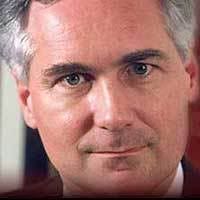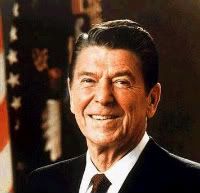There is nothing worst than watching your child suffer due to the “crud in the air,” regardless of how the air became so filthy. Inhalers and trips to the emergency room are routine for “breathing treatments.” Watching your child gasp for breath is a horrible, and to a great deal, a preventable experience. No, there is nothing quite like it. There is also nothing quite like legislators attempting to roll back clean air laws with disputed facts.
For the past few weeks I have read various articles on the attempts by Assembly Person Dan Logue and Congress Person Tom McClintock, and their attempts to repeal CALIFORNIA ASSEMBLY BILL 32, which was signed into law by our current Governor. They have attacked the law, which is not even close to being implemented yet, as a “job killer.” The bill, and now law, is NOT and never was a “Jobs” bill, as they attempt to make the case for (including their rejected attempts to have it described so on official documents to gather signatures to put on the ballot by the State of California). It is a CLEAN AIR LAW and certainly, when you look at the facts, NOT A JOB KILLER now or later, when fully implemented.
Last night I read an article regarding the Logue/McClintock attempts to undo AB 32 and just how wrong headed the attempts to roll back the “air quality” bill are. The author, THOMAS D. ELIAS, also addresses how even an untruth can (and is) used to make the case for a problem and a credible solution to an existing law that simply does not exist. In my opinion, the following article pretty much destroys the argument put forth for repeal of current law. As far as I am concerned it should be published in the voter guide and sent to every voter in California. The artice is presented below with permission of the author.
“THE MISGUIDED OPPOSITION TO AB 32 AND CAP AND TRADE”
BY THOMAS D. ELIAS
Whether or not Congress eventually approves the greenhouse-gas reduction agreements reached late last year in Copenhagen, California will soon have a cap-and-trade system in place.
Unless voters here put a ballot initiative to the contrary on the November ballot and then pass it. Sponsors of this putative proposition call it the “California Jobs Initiative,” contending jobs will be lost in efforts to fight global warming by demanding lower industrial emissions of greenhouse gases like carbon dioxide and methane.
“With unemployment at 12.5 percent and another looming budget deficit, this is not the time for California to attempt an overhaul of the entire economy at a cost of tens of billions of dollars,” writes Republican Assemblyman Dan Logue of Linda, in Yuba County, one of the initiative’s backers.
The presumption here and among many other opponents of doing much about climate change is simple: Fixing the environment will cost business billions of dollars and eliminate many thousands of jobs.
But they never back that bromide with facts. That’s because it is based on little more than reflexive, knee-jerk guesswork. Still, their campaign is effective. It even has led major polling organizations like Gallup and Harris to run surveys where a slight majority of respondents now favors economic growth over fixing the environment.
It turns out that’s a false choice. For doing something about greenhouse gas emissions doesn’t necessarily mean business will be hurt or jobs lost.
That’s the conclusion of a major report forecasting that cap-and-trade rules like those the “Jobs Initiative” seeks to cancel actually will cost most businesses pennies, if anything. Meanwhile, another study of the existing carbon market in Europe, the first large industrial region to make serious efforts at cutting greenhouse gases, demonstrates that cap-and-trade proved profitable to most businesses and gave them no reason to cut jobs.
Cap-and-trade is a system where companies are assigned limits for permissible emissions. These “caps” drop each year until environmental goals are reached. Companies that emit less than their quota can trade or sell the difference between actual gases they produce and what they’re permitted to others which emit too much. So outfits that do the most to cut the gases they produce stand to make profits. How much depends on the going price of emission credits.
The way this has actually worked runs completely counter to popular presumptions pushed by conservative politicians like Logue; initiative co-author Tom McClintock, the Republican congressman from Placer County, and many vocal talk-show hosts.
So pervasive is the belief that cutting greenhouse gases costs jobs that two current leading Republican candidates for governor and the U.S. Senate, Meg Whitman and Carly Fiorina, both base their campaigns in significant part on a belief that popular support for environmental measures is waning because of high unemployment.
The polls suggest some movement that way. That’s because the false environmentalism-kills-jobs line has been pushed so loudly and so often.
The fact is that cap-and-trade has not killed jobs or companies in Europe, where a UC Berkeley Energy Institute study shows that when carbon trading began there in 2005, stock prices rose for companies that produced the most emissions the previous year and therefore got the highest emission quotas. This happened because those firms had to do least to cut their pollution and thus had an easy time acquiring emission credits they could trade or sell.
“Rather than being hurt by imposition of…regulation,” the Berkeley study concluded, “(many) industrial sectors benefited.” Which means that big businesses can make large profits by cleaning up their operations, and the cleaner they become, the more they can make – so long as other companies opt to stay dirty.
At almost the same time, the Union of Concerned Scientists funded a study of its own showing that small business will suffer few impacts from AB32, the landmark 2006 law mandating greenhouse gas cuts in California.
“Most small businesses will not be regulated under AB32 (the law behind the planned cap-and-trade system here),” that report concluded. One of its case studies checked potential effects on the Border Grill, a Los Angeles-area restaurant chosen because eateries are more energy intensive than the average small business, while also creating more jobs than most types of small business.
The analysis found that a cap-and-trade system covering the electricity, natural gas and transportation companies used by the Border Grill would create pass-through costs of less than three cents for every $20 meal served.
Concluded the study, “The likely effects of AB32 will be minor for small businesses.”
All of which means the adamant and vocal opponents of doing anything about global warming have been master propagandists, causing much of the public to believe in a mostly fictitious conflict pitting business and jobs against efforts to fight climate change.
Email Thomas Elias at [email protected]. His book, “The Burzynski Breakthrough,” is now available in a soft cover fourth edition. For more Elias columns, visit www.californiafocus.net
Thank goodness for Mr. Elias for destroying the Logue/McClintock argument for repeal of current law (AB32) and for permission to reproduce the column. Let us all breath a little easier, now and after the efforts to repeal current law fails, always.
Link to original column: http://www.californiafocus.net…








